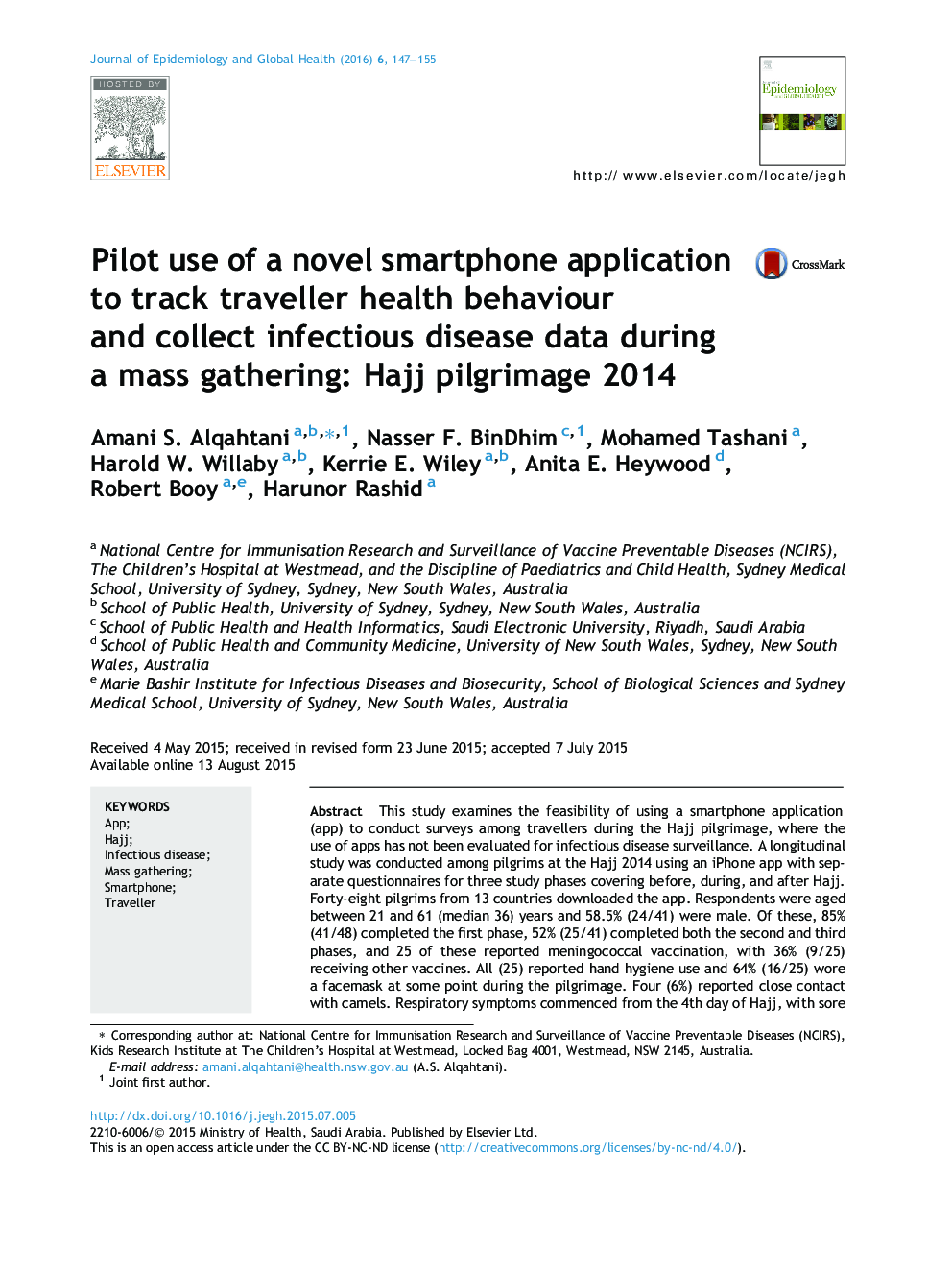| Article ID | Journal | Published Year | Pages | File Type |
|---|---|---|---|---|
| 3327432 | Journal of Epidemiology and Global Health | 2016 | 9 Pages |
This study examines the feasibility of using a smartphone application (app) to conduct surveys among travellers during the Hajj pilgrimage, where the use of apps has not been evaluated for infectious disease surveillance. A longitudinal study was conducted among pilgrims at the Hajj 2014 using an iPhone app with separate questionnaires for three study phases covering before, during, and after Hajj. Forty-eight pilgrims from 13 countries downloaded the app. Respondents were aged between 21 and 61 (median 36) years and 58.5% (24/41) were male. Of these, 85% (41/48) completed the first phase, 52% (25/41) completed both the second and third phases, and 25 of these reported meningococcal vaccination, with 36% (9/25) receiving other vaccines. All (25) reported hand hygiene use and 64% (16/25) wore a facemask at some point during the pilgrimage. Four (6%) reported close contact with camels. Respiratory symptoms commenced from the 4th day of Hajj, with sore throat (20%) and cough (12%) being the most common. Three participants (12%) reported respiratory symptoms after returning home. Conducting a prospective survey using a smartphone app to collect data on travel-associated infections and traveller compliance to prevention is feasible at mass gatherings and can provide useful data associated with health-related behaviour.
